
When the heart beats faster than normal the heart is said to be tachycardic and the person has tachycardia. At rest, healthy adult person’s heart normally beats 60 to 100 times in one minute (beats per minute or bpm). Tachycardia may not cause any symptoms or be the cause of any health complications. However, there are cases when fast heart rate is responsible for problems with normal functioning of the heart, increased risk for development of stroke, sudden cardiac arrest or lethal consequence.
What Causes Tachycardia?
The rate of the heart is controlled by electrical signals traveling across the heart tissue. If there is something abnormal with this control mechanism and it starts producing rapid signals the heart starts to beta faster and becomes tachycardic.
Electrical system of the heart may be disrupted with many conditions or diseases and, as the result, the person may experience tachycardia. Damage of the heart tissue, abnormality of the heart (due to disease or congenital) and congenital abnormality of electrical pathways in the heart are some of the causes of tachycardia.
Hypertension (high blood pressure), electrolyte (mineral) imbalance in the body and hyperthyroidism (over-active thyroid gland) can also be responsible for the same problem.
People drinking too much alcohol or some caffeinated drinks and smokers may also experience fast heart beat. Certain medications and abuse of recreational drugs like cocaine may also provoke development of tachycardia in some people.
However, some patients may have been diagnosed with tachycardia but the exact cause of their problem can’t be identified.
Tachycardia Types
Doctors have been able to identify and diagnose several types of tachycardias. The most common are: atrial fibrillation and atrial flutter, supraventricular tachycardias and ventricular tachycardia and ventricular fibrillation.
Atrial fibrillation is caused by chaotic electrical impulses coming to the atria of the heart, leading to their rapid and weak contractions. Patients diagnosed with this tachycardia usually suffer from hypertension or some heart disease, but alcohol abuse, over-active thyroid and heart valve disorder have been known to contribute to this condition. This can be either transient or permanent condition, even with the treatment. Atrial flutter is characterized by very fast and regular rate or atria, which may resolve on its own or require some treatment. Many patients experience both atrial fibrillation and atrial flutter.
Supraventricular tachycardia or SVT starts above the ventricles and this is usually congenital problem. This condition may be presented as “split” of the electrical signal or existence of extra pathway from the atria to the ventricles.
Ventricular tachycardia originates in the ventricles and this is frequently urgent medical situation, threatening patients’ life. Ventricular fibrillation is also medical emergency, often seen in people who have some underlying heart disease or have been struck by lightning. This condition requires medical assistance in several minutes from the start or the patient dies.



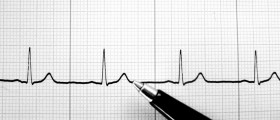


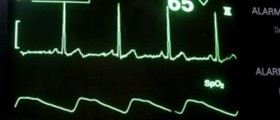

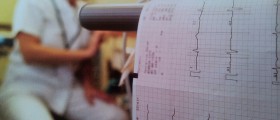

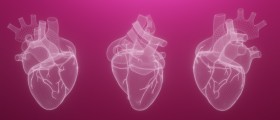

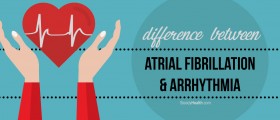




Your thoughts on this
Loading...